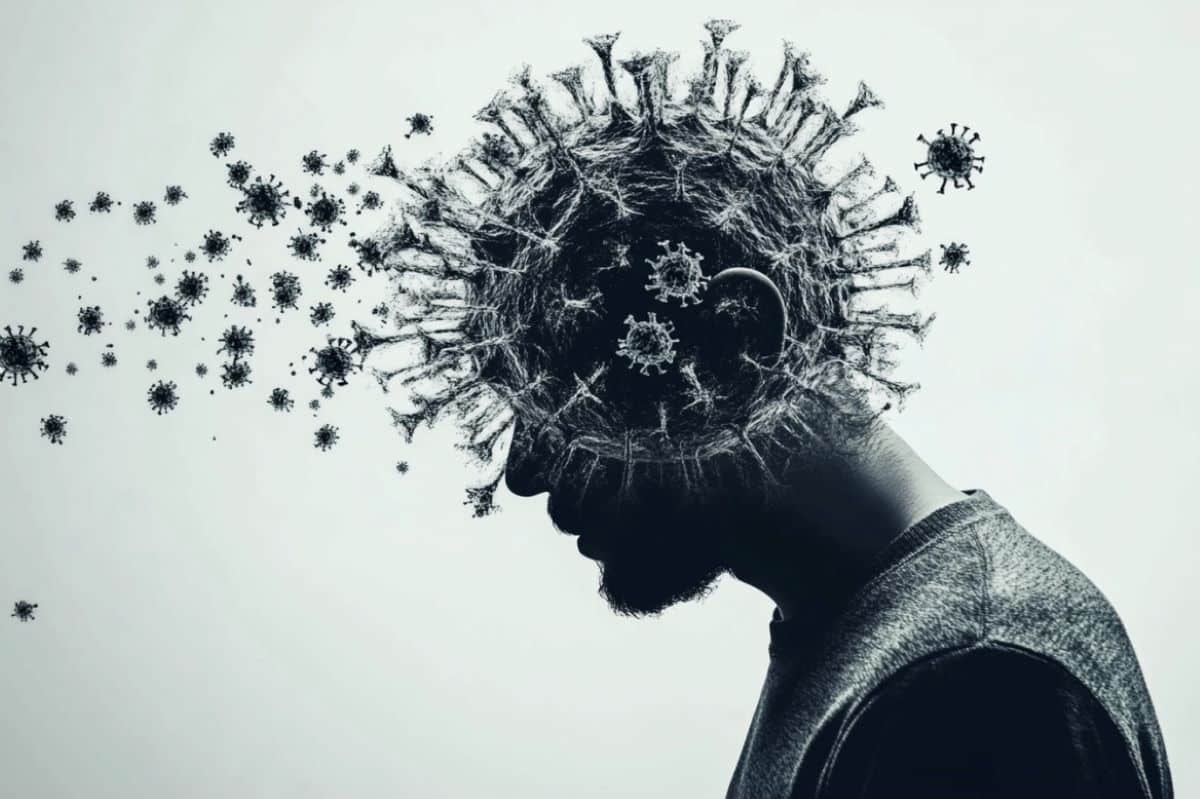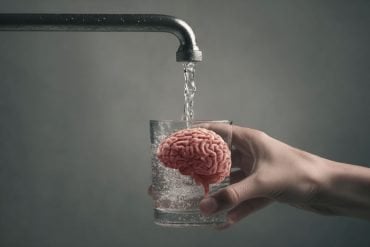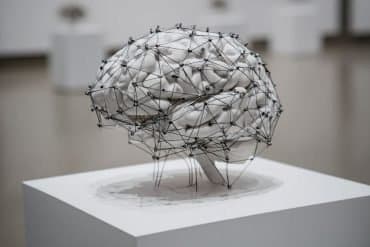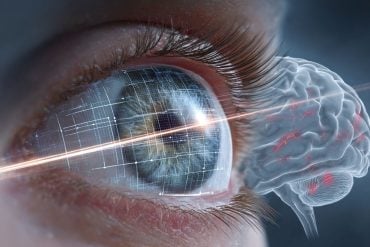Summary: Healthy adults who contracted COVID-19 had subtle but measurable declines in memory and cognitive performance lasting up to a year. These differences were found through sensitive testing under controlled conditions, though all scores remained within normal ranges, and none of the participants reported lasting cognitive symptoms.
The research highlights how even mild COVID-19 can impact brain function and points to the potential need for treatments to mitigate these effects. Further studies are needed to explore how COVID-19 compares with other respiratory infections, like flu, in terms of cognitive impact.
Key Facts:
- COVID-19 can cause subtle cognitive changes in memory and problem-solving for up to a year.
- These effects were detected through sensitive cognitive tests, not self-reports.
- Participants in the study did not experience any noticeable long-term cognitive symptoms.
Source: Imperial College London
A new analysis from Imperial’s human challenge study of COVID-19 has revealed subtle differences in the memory and cognition scores of healthy volunteers infected with SARS-CoV-2, which lasted up to a year after infection.
The researchers say all scores fell within expected normal ranges for healthy individuals and no one reported experiencing any lasting cognitive symptoms such as brain fog.
The findings, published in the journal eClinicalMedicine, show a small but measurable difference following highly intensive cognitive testing of 18 healthy young people with infection compared to those who did not become infected, monitored under controlled clinical conditions.

The team explains that incorporating such sensitive cognitive testing into future studies could help reveal more detailed insights into how infections may alter brain function and could help to find ways to reduce these processes when they cause symptoms.
Senior author Professor Adam Hampshire, from the Department of Brain Sciences at Imperial College London and now based at King’s College London, explained, “We know that COVID-19 can have lasting impacts on our memory and ability to carry out common cognitive tasks.
However, much of the scientific evidence we have comes from large studies based on self-testing and reporting, or where there’s a range of variables that could increase or reduce these effects.
“Our work shows that these cognitive effects are replicated even under carefully controlled conditions in healthy individuals—including infection with a comparable dose of virus—and further highlights how respiratory infections can impact specific aspects of brain function.
“We were only able to detect some of these effects because of the trial design, which used very sensitive tests and controlled conditions, with participant performance compared to their own pre-inoculation baselines. This enabled us to pick up on subtle changes of which the participants themselves appear not to have been aware.”
COVID-19 and cognition
Previous studies that included patients with a wide range of severities have shown COVID-19 can have a lasting impact on people’s brain function. One such study, led by Imperial and involving more than 140,000 people, found small deficits in the performance of cognitive and memory tasks in people who had recovered from COVID-19, with differences evident a year or more after infection.
In the latest study, researchers analyzed findings from a small group of healthy volunteers who were part of the world’s first human challenge study for COVID-19 in 2021. The findings reveal subtle differences in how they performed on the same tests, which lasted up to 12 months although later testing could have been affected by other and later factors.
During the trial, 36 healthy, young participants with no previous immunity to the virus were infected with SARS-CoV-2 and monitored under controlled clinical conditions. They were carefully monitored and remained at the facility until they were no longer infectious. From the group, 18 participants became infected and developed mild illness, one without symptoms.
Participants also performed sets of tasks to measure multiple distinct aspects of their brain function, including memory, planning, language and problem solving, using the Cognitron platform. Participants took the tests before exposure to the virus, during the two weeks they spent in the clinical facility, and then at multiple points for up to a year.
Analysis showed that those who became infected with SARS-CoV-2 had statistically lower cognitive scores than uninfected volunteers—compared to baseline scores—during their infection as well as during the follow-up period. The main differences in scores were seen in memory and executive function tasks (including working memory, attention and problem solving).
Differences in scores between groups were seen up to one year after infection, with the uninfected group performing slightly better on tasks overall.
The researchers note that the observed differences were small and that none of the volunteers reported prolonged cognitive symptoms. They also highlight limitations of the study, including the small sample size and that the majority of participants were white males, and so caution is needed in extrapolating the findings to the general population.
They explain that future research could examine the biological links between respiratory infection and cognition in COVID-19, and even show how this impact compares with other conditions, such as Respiratory syncytial virus (RSV) or influenza.
Co-author Professor Christopher Chiu, from the Department of Infectious Disease at Imperial College London, who led the COVID-19 human challenge study, said, “These latest findings from our study add more fine detail to the picture we have of COVID-19 and other respiratory infectious diseases.
“Challenge studies can offer a tool to help us better understand how infections disrupt a range of biological functions. Here, by showing biological effects that fall below what could be considered symptoms or disease, we were able to identify the smallest changes in these pathways.
“This could ultimately help us to develop new treatments to reduce or even block some of these effects, which we know on other settings can have lasting impacts on people’s lives.”
About this Long-COVID and memory research news
Author: Ryan O’Hare
Source: Imperial College London
Contact: Ryan O’Hare – Imperial College London
Image: The image is credited to Neuroscience News
Original Research: Open access.
“Changes in memory and cognition during the SARS-CoV-2 human challenge study” by William Trender et al. EClinicalMedicine
Abstract
Changes in memory and cognition during the SARS-CoV-2 human challenge study
Background
Patient-reported outcomes and cross-sectional evidence show an association between COVID-19 and persistent cognitive problems. The causal basis, longevity and domain specificity of this association is unclear due to population variability in baseline cognitive abilities, vulnerabilities, virus variants, vaccination status and treatment.
Methods
Thirty-four young, healthy, seronegative volunteers were inoculated with Wildtype SARS-CoV-2 under prospectively controlled conditions. Volunteers completed daily physiological measurements and computerised cognitive tasks during quarantine and follow-up at 30, 90, 180, 270, and 360 days. Linear modelling examined differences between ‘infected’ and ‘inoculated but uninfected’ individuals.
The main cognitive endpoint was the baseline corrected global cognitive composite score across the battery of tasks administered to the volunteers. Exploratory cognitive endpoints included baseline corrected scores from individual tasks.
The study was registered on ClinicalTrials.gov with the identifier NCT04865237 and took place between March 2021 and July 2022.
Findings
Eighteen volunteers developed infection by qPCR criteria of sustained viral load, one without symptoms and the remainder with mild illness. Infected volunteers showed statistically lower baseline-corrected global composite cognitive scores than uninfected volunteers, both acutely and during follow up (mean difference over all time points = −0.8631, 95% CI = −1.3613, −0.3766) with significant main effect of group in repeated measures ANOVA (F (1,34) = 7.58, p = 0.009).
Sensitivity analysis replicated this cross-group difference after controlling for community upper respiratory tract infection, task-learning, remdesivir treatment, baseline reference and model structure. Memory and executive function tasks showed the largest between-group differences. No volunteers reported persistent subjective cognitive symptoms.
Interpretation
These results support larger cross sectional findings indicating that mild Wildtype SARS-CoV-2 infection can be followed by small changes in cognition and memory that persist for at least a year. The mechanistic basis and clinical implications of these small changes remain unclear.
Funding
This study was funded through the UK Vaccine Taskforce of the Department for Business, Energy and Industrial Strategy (BEIS) of Her Majesty’s Government.






